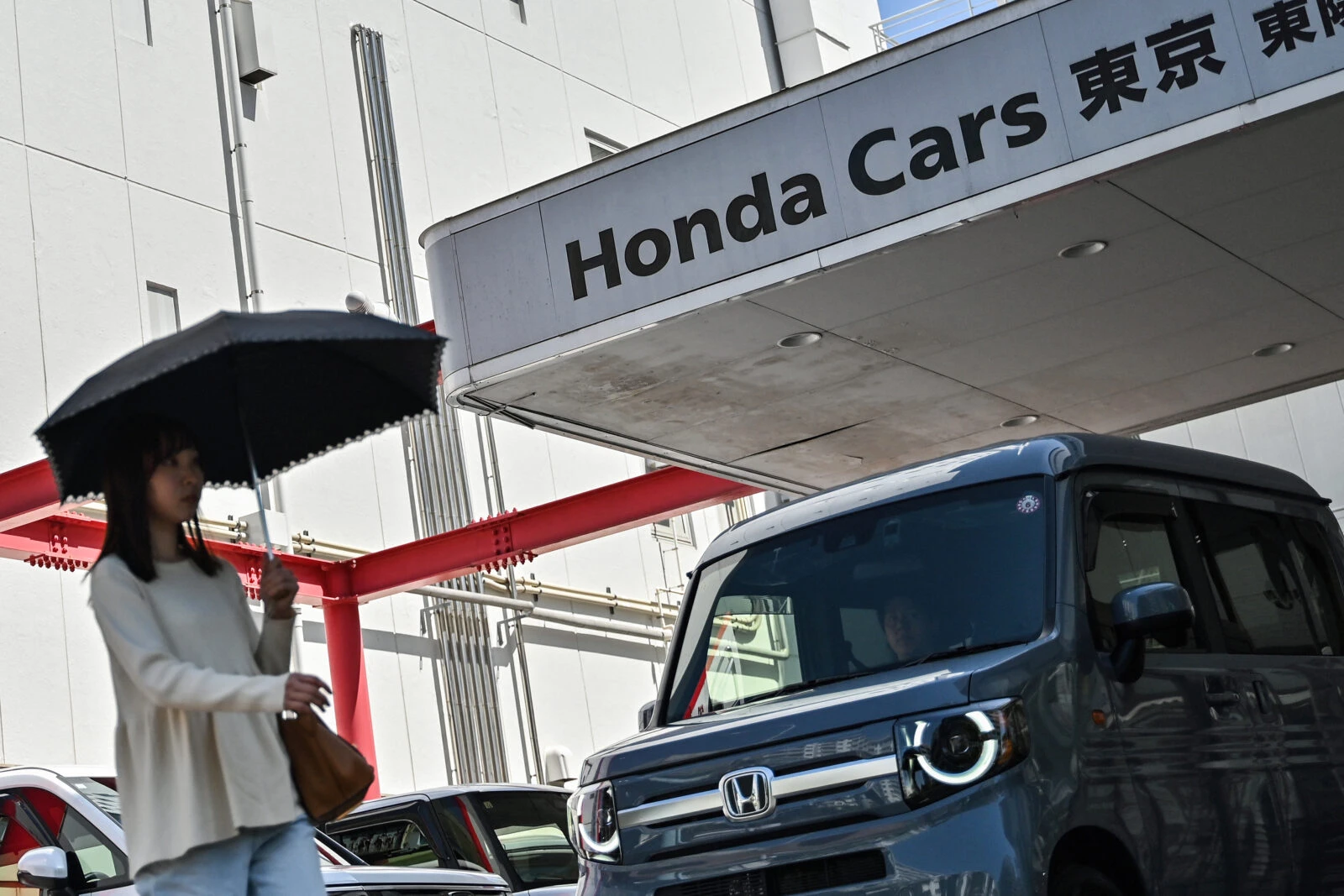Japanese carmaker Honda to shift production of iconic Civic model to US
 A new-generation Honda Civic e:HEV hybrid is displayed at the Brussels Motor Show in Brussels, Belgium, on January 10, 2025. (Adobe Stock Photo)
A new-generation Honda Civic e:HEV hybrid is displayed at the Brussels Motor Show in Brussels, Belgium, on January 10, 2025. (Adobe Stock Photo)
Japanese auto giant Honda announced Wednesday that it will transfer production of its hybrid Civic model from Japan to the United States as early as June or July, just ahead of U.S. President Donald Trump hosting a Japanese envoy for talks on tariffs.
A spokesperson for the Japanese automaker emphasized that the rationale behind the shift “is not a single issue,” adding that the decision aligns with Honda’s long-standing policy of manufacturing vehicles in markets where demand exists. “The decision is based on the company’s policy since its foundation that we produce cars where the demand is,” the spokesperson said.
Under the Trump administration’s recent policy shift, Japanese imports—particularly automobiles, steel, and aluminum—have been subjected to a 24% tariff. Japan, along with several other countries, received a 90-day reprieve, with China notably excluded. Imports from China now face reciprocal tariffs of up to 145%, as Washington moves to address what it describes as unfair trade practices and imbalanced economic relationships.

Japan leads Asian push on tariffs
The announcement coincides with Japan’s intensified diplomatic outreach to the U.S. over newly imposed trade barriers, as President Trump stated in a Truth Social post that he would meet with a Japanese envoy on Wednesday, noting that Japan is the largest investor in the United States.
“Japan is coming in today to negotiate Tariffs, the cost of military support, and ‘TRADE FAIRNESS.’ I will attend the meeting, along with Treasury & Commerce Secretaries. Hopefully something can be worked out which is good (GREAT!) for Japan and the USA!” he said.
Economic Revitalization Minister Akazawa Ryosei has traveled to Washington for high-level tariff negotiations, where he is scheduled to meet with U.S. Treasury Secretary Scott Bessent and Trade Representative Jamieson Greer.
Akazawa told reporters ahead of the meetings that Japanese businesses are experiencing daily financial losses due to the trade measures and said the government is working urgently to secure meaningful results. “I am prepared for talks to protect the national interest,” he stated.
Japanese Prime Minister Shigeru Ishiba also addressed the issue earlier, declaring that Tokyo would not make hasty compromises during negotiations, underscoring that Japan “won’t compromise” in efforts to resolve the dispute with the U.S.
President Trump’s tariff regime includes a baseline 10% levy on all imports, but individual countries have been affected at varying levels. Tokyo has repeatedly urged Washington to exempt Japanese products from the sweeping measures.
In parallel, other Asian economies are also taking steps to address their own tariff challenges. A senior-level delegation from Indonesia departed for Washington on Wednesday following the U.S. decision to impose a 32% tariff on Indonesian goods.
South Korea’s Finance Minister Choi Sang-mok is also expected to hold talks with Secretary Bessent next week as Seoul seeks relief from similar trade pressures.



